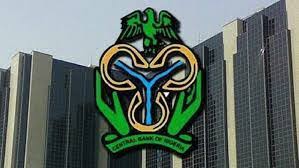The Central Bank of Nigeria (CBN) has directed banks, Payment Service Banks, and Other Financial Institutions (OFIs) in the country to submit all compliance-related reports and correspondence to its Compliance Department.
The directive was contained in a circular signed by the Director of Compliance Department, Mrs. Olubunmi Ayodele-Oni, and addressed to all regulated financial institutions.
According to the apex bank, the Compliance Department was formally created in the first quarter of 2025, with full operations beginning in the second quarter. With its establishment, oversight responsibility for non-prudential risk areas has now been reassigned to the new department.
The CBN explained that the creation of the department was part of broader structural reforms aimed at consolidating regulatory effectiveness, clarifying institutional responsibilities, and strengthening oversight of non-prudential and emerging risks across Nigeria’s financial system.
The areas now under the Compliance Department include:
- Financial Crime Supervision, covering Anti-Money Laundering (AML), Countering the Financing of Terrorism (CFT), Counter-Proliferation Financing (CPF), and sanctions compliance.
- Market Conduct Supervision, which includes oversight of disclosure practices, complaints management systems, and advertising standards.
- Enterprise Security Supervision, covering cybersecurity, data protection, and third-party risk management.
- Corporate Governance and ESG Supervision, which focuses on board effectiveness and Environmental, Social, and Governance (ESG) practices.
The circular stated: “Henceforth, all regulatory reports, correspondence, and related inquiries concerning these matters should be directed to the Director, Compliance Department through the established communication channels.”
It further noted that financial institutions will receive direct communication from the Compliance Department on specific contact persons and submission procedures to ensure a smooth transition.
The apex bank also assured that the reform was intended to help financial institutions adapt to evolving risks while upholding high standards of regulatory compliance. “The CBN looks forward to continued cooperation from all institutions in ensuring a smooth transition and in upholding the highest standards of compliance with applicable regulatory requirements,” the circular added.
This development means that compliance functions, which were previously spread across different departments in the CBN, have now been centralised under one unit. Analysts say this could help streamline supervision and make regulatory oversight more efficient, especially in sensitive areas such as financial crime and cybersecurity.
The move also comes at a time when Nigerian banks and fintech operators face growing scrutiny over anti-money laundering compliance, fraud prevention, and data protection standards. International financial watchdogs have in recent years urged Nigerian regulators to strengthen controls to prevent illicit financial flows and terrorism financing.
Market analysts believe that centralising compliance oversight under one department will also reduce duplication of roles, speed up regulatory correspondence, and enhance accountability. However, they caution that the effectiveness of the reform will depend on how responsive and transparent the new department is in dealing with financial institutions.
The emphasis on Enterprise Security Supervision is seen as particularly important, given the increasing cybersecurity threats facing banks, payment service providers, and digital lenders. With the rapid expansion of fintech services and online banking platforms, regulators are paying closer attention to third-party risks and data protection issues.
By also placing Corporate Governance and ESG supervision under the Compliance Department, the CBN is signalling its intention to raise standards in boardroom accountability and responsible business practices. This aligns with global regulatory trends where central banks and financial regulators are increasingly factoring ESG principles into their supervisory frameworks.
For financial institutions, the directive means stricter reporting obligations in areas such as anti-money laundering, customer protection, and ethical governance. Institutions that fail to comply with the new submission rules may face penalties.
The transition period is expected to last several months, during which the CBN will provide more guidance on reporting templates, deadlines, and communication channels. Industry stakeholders say banks and other institutions must strengthen their internal compliance teams to adapt to the new reporting structure ahead of time.
